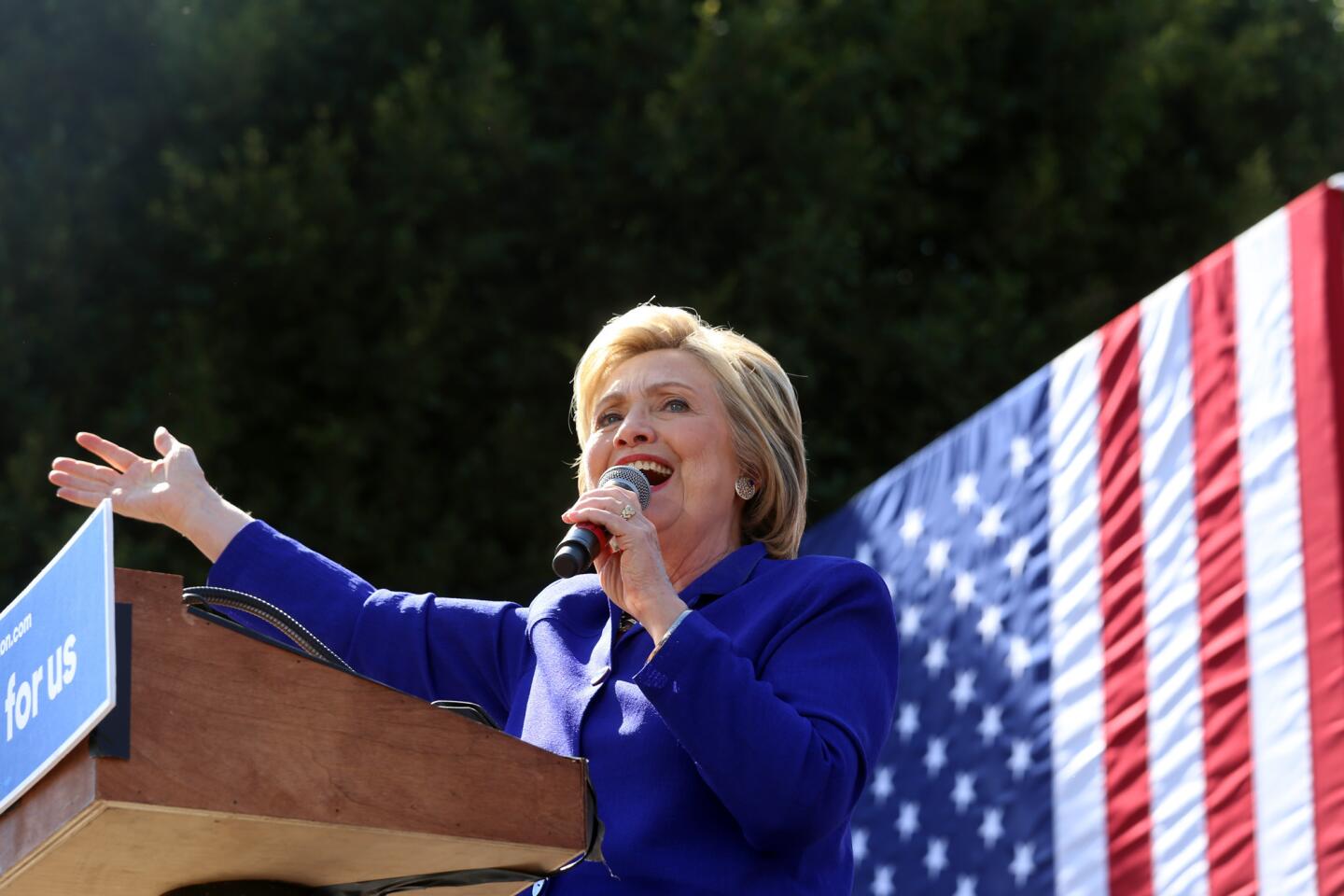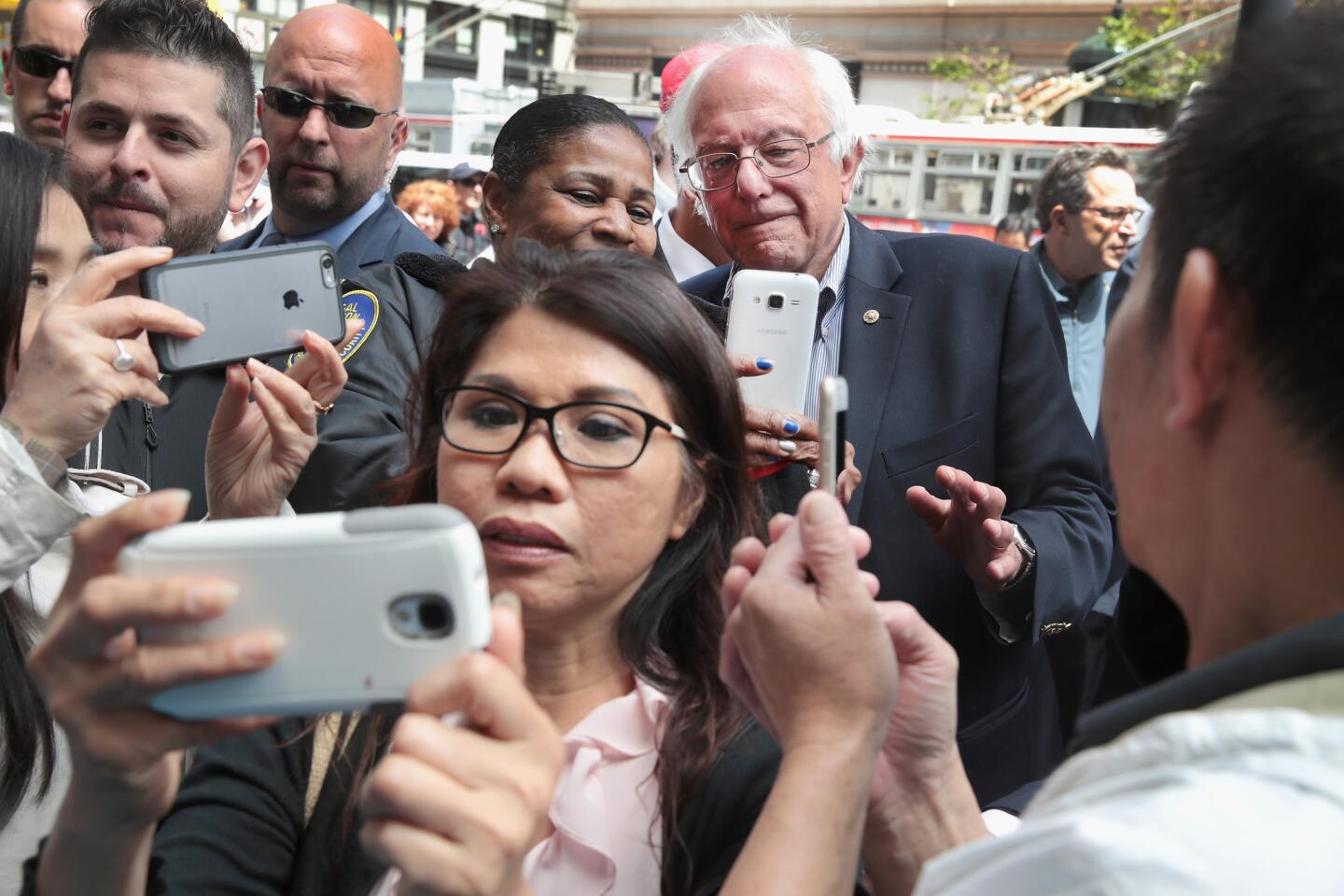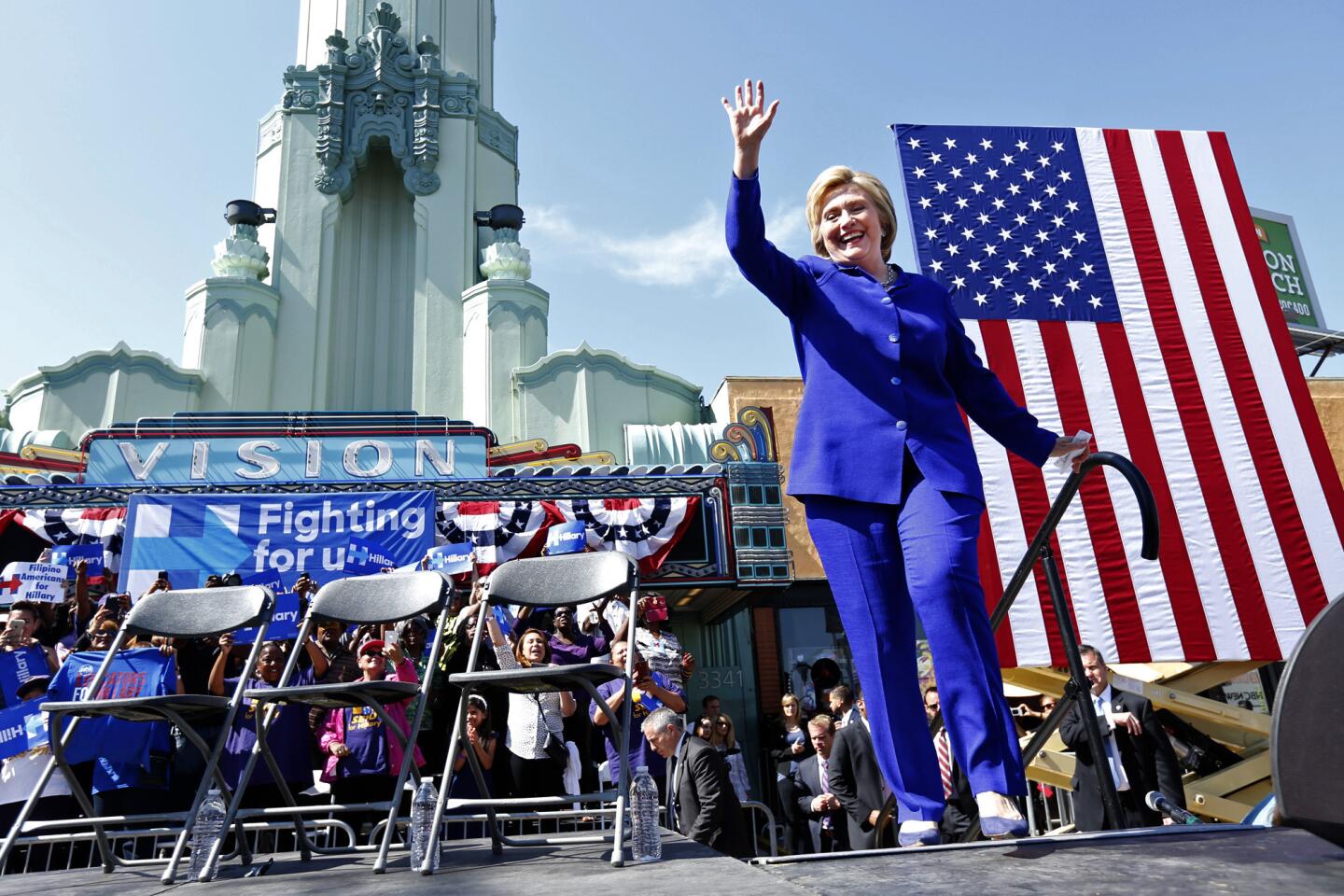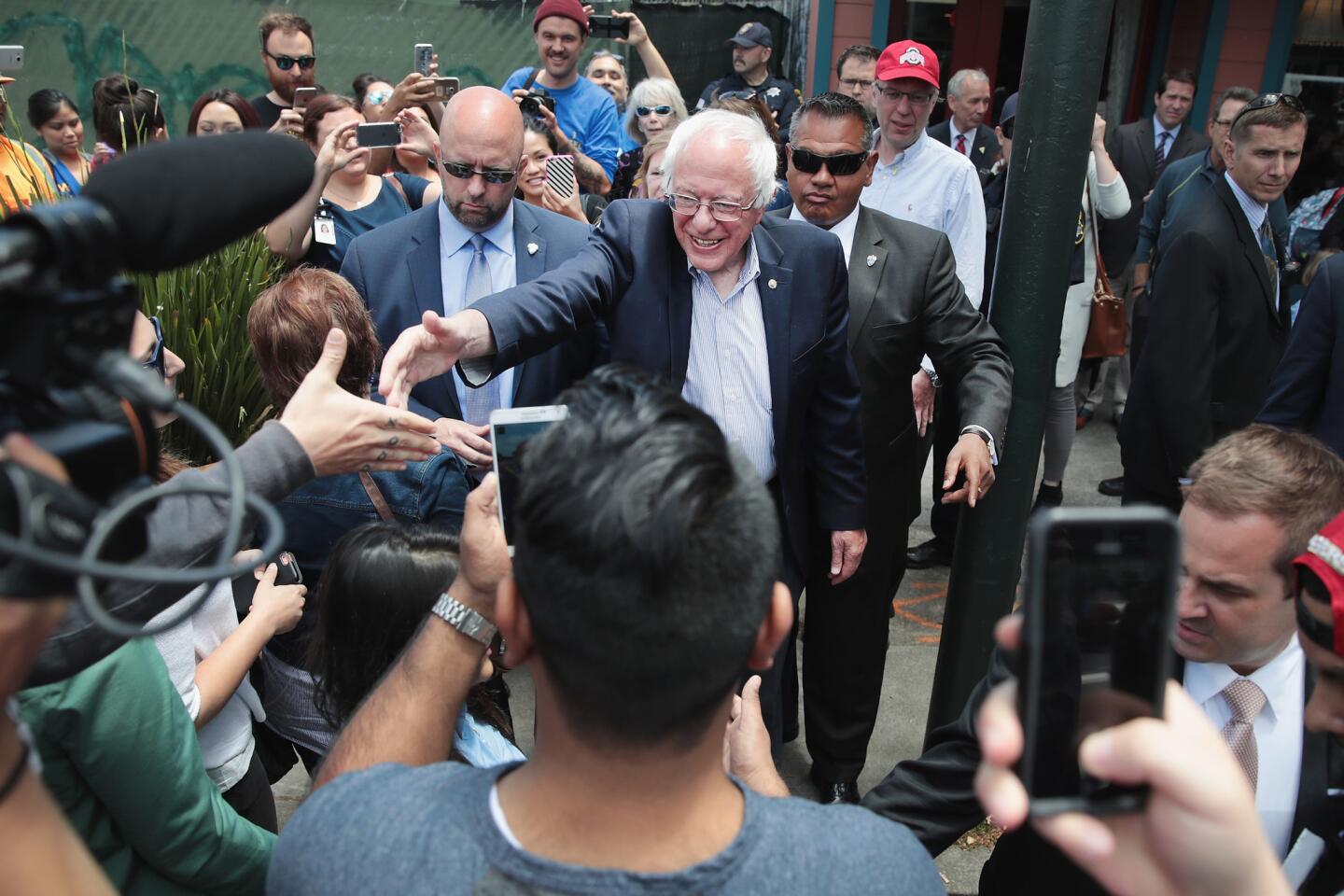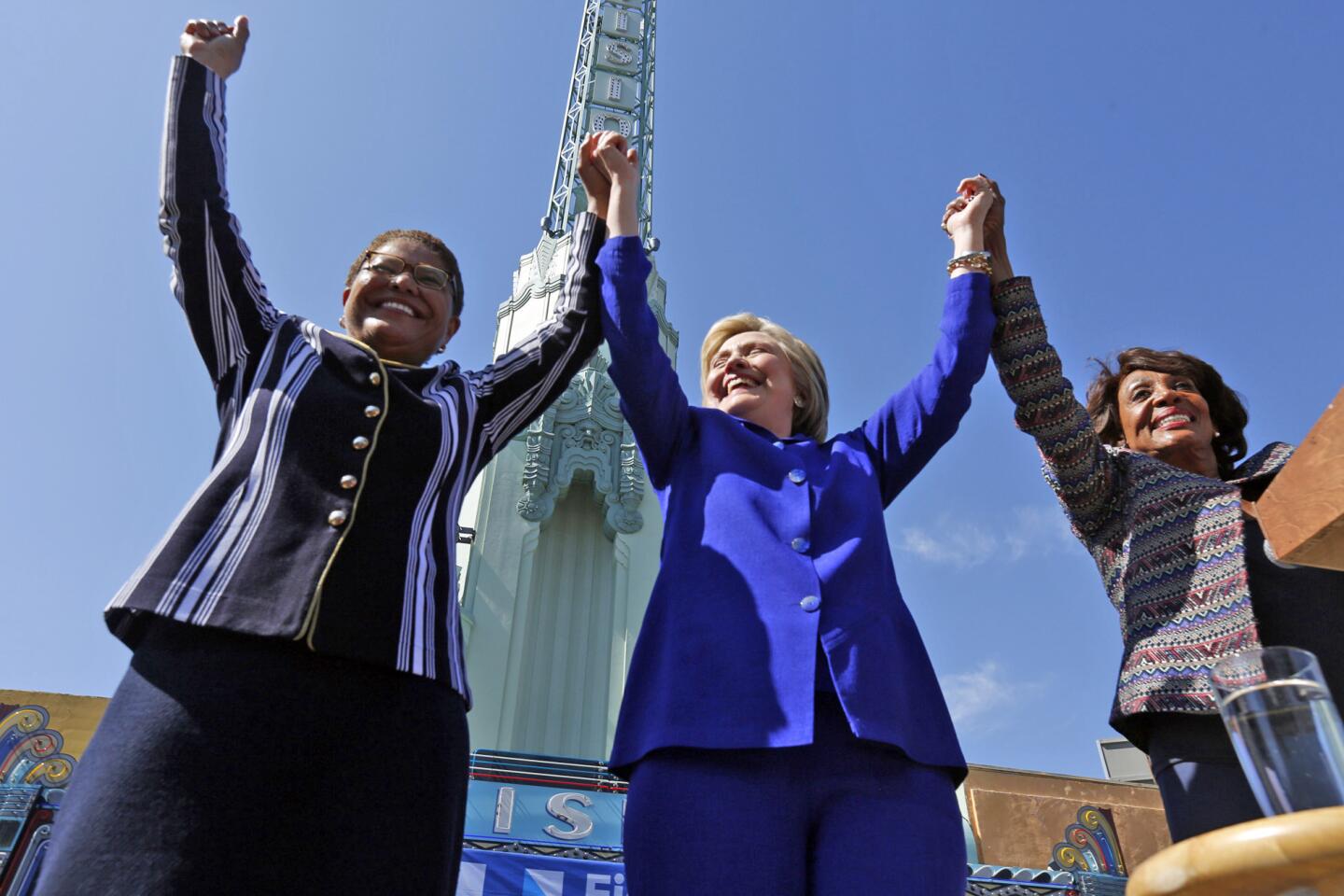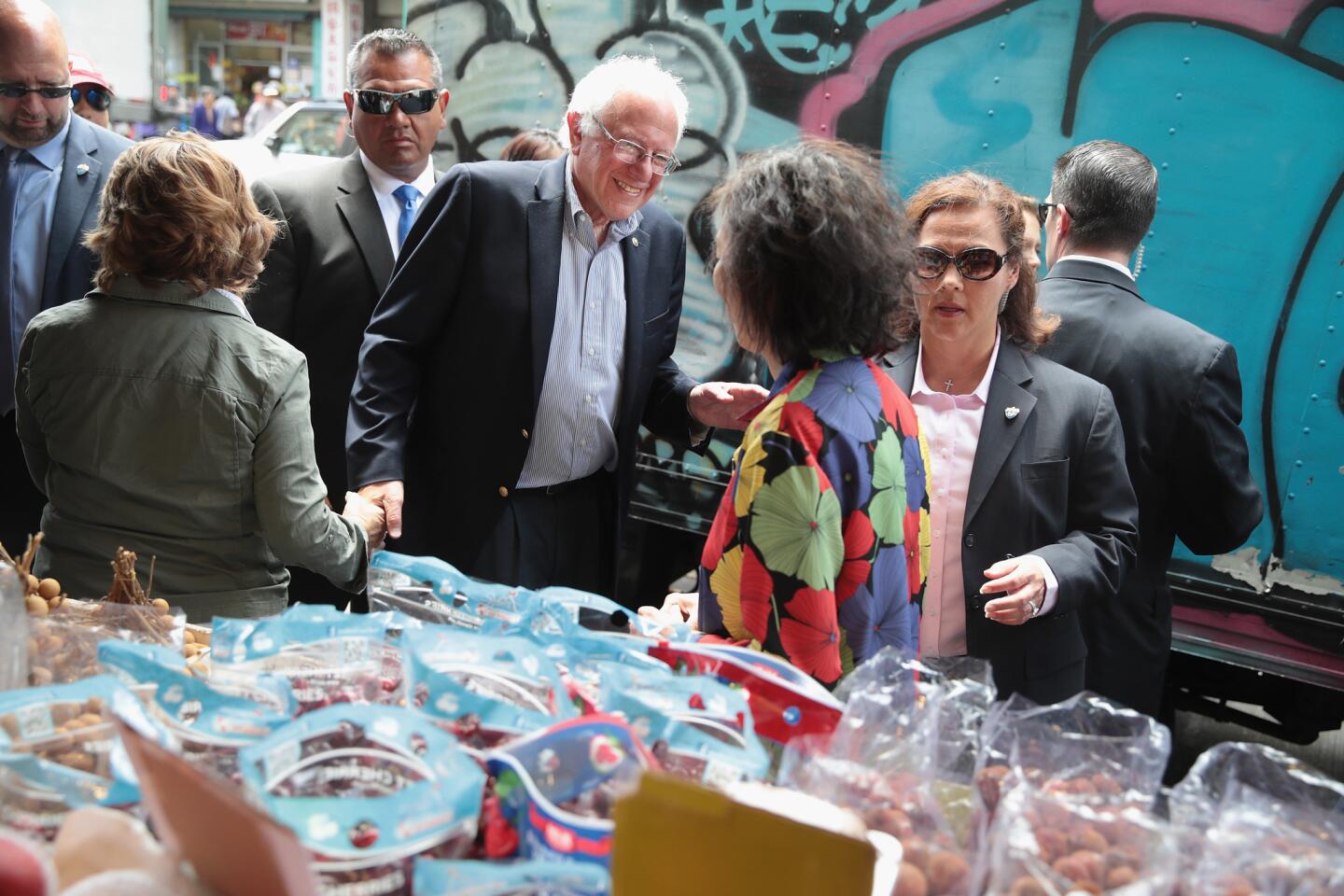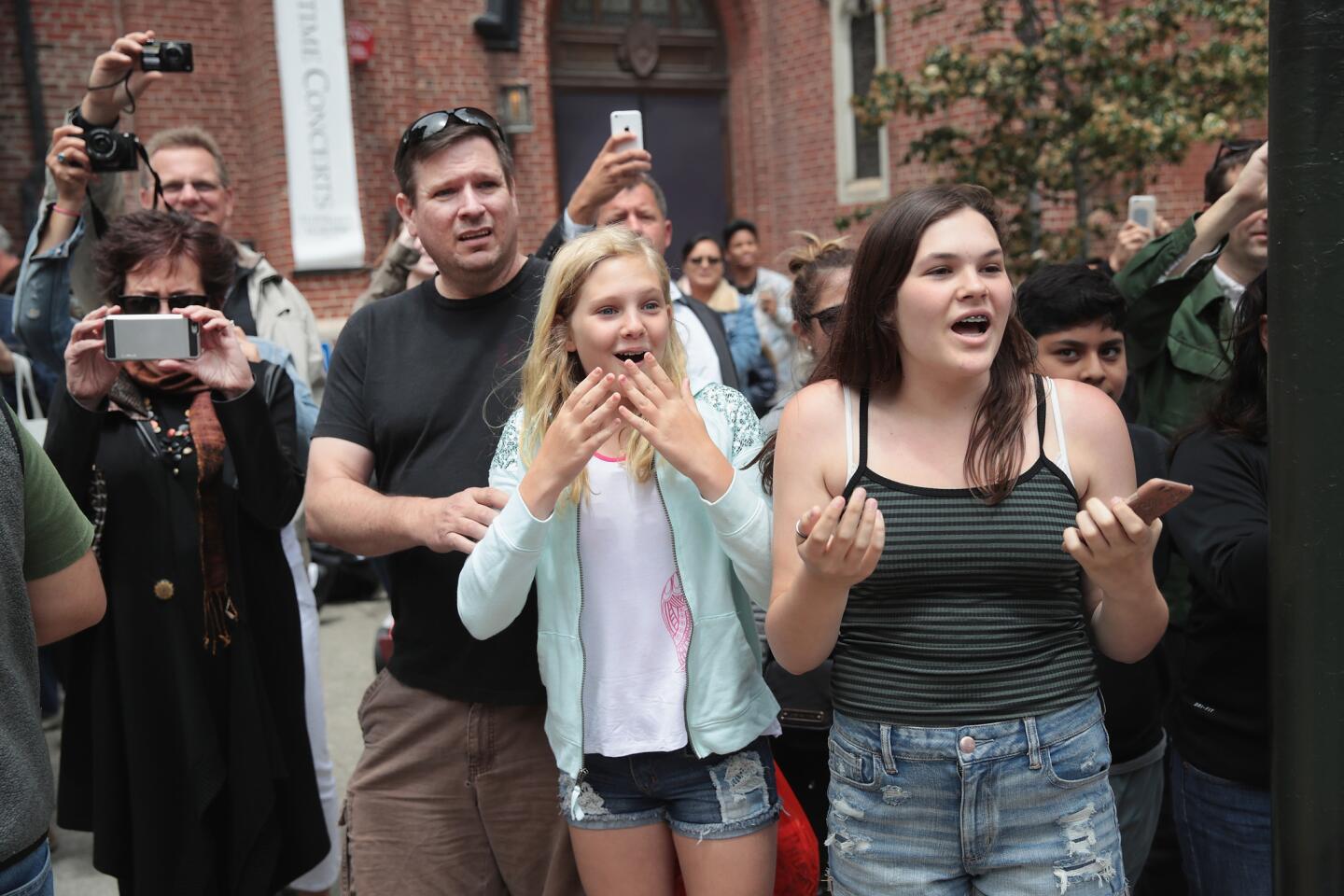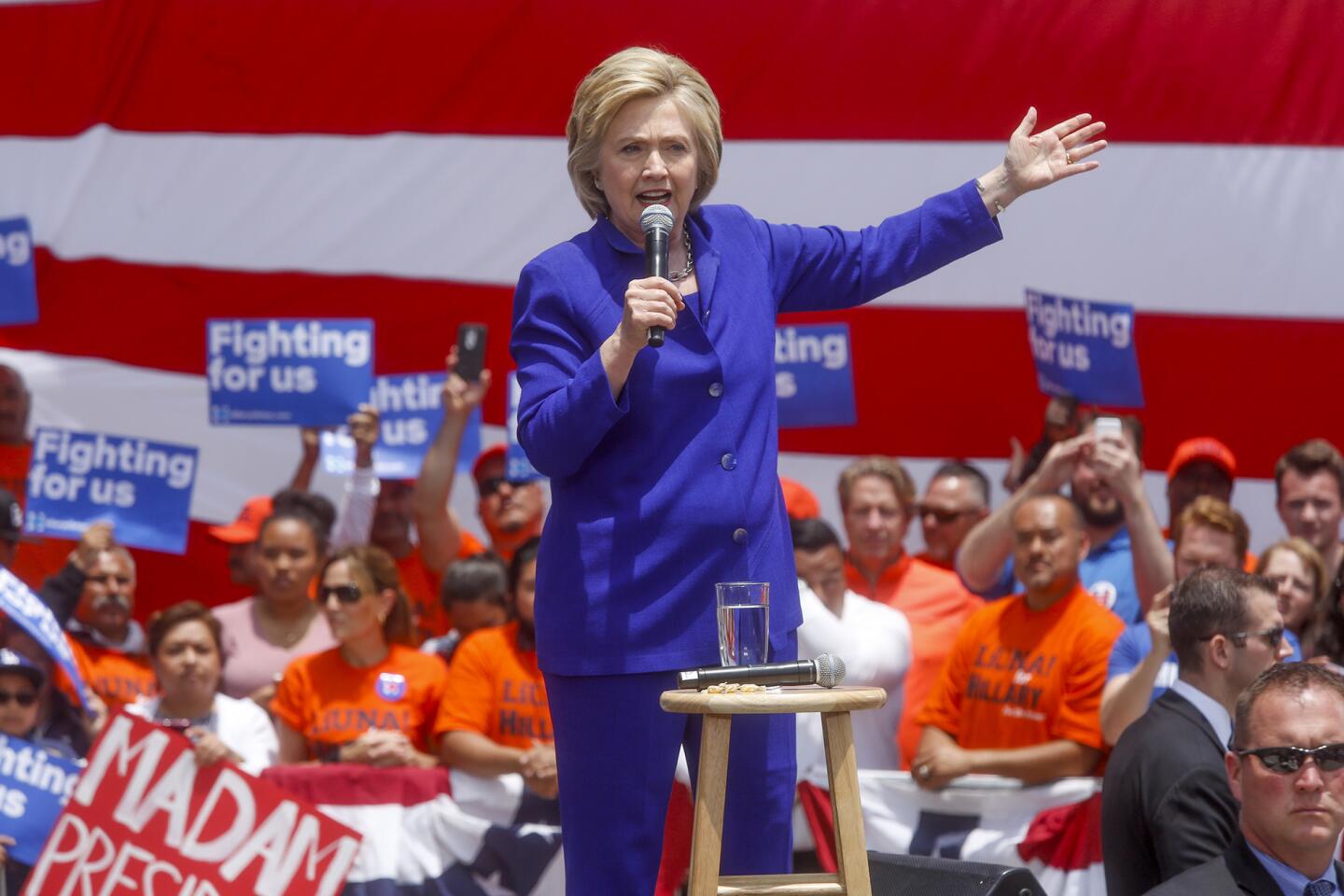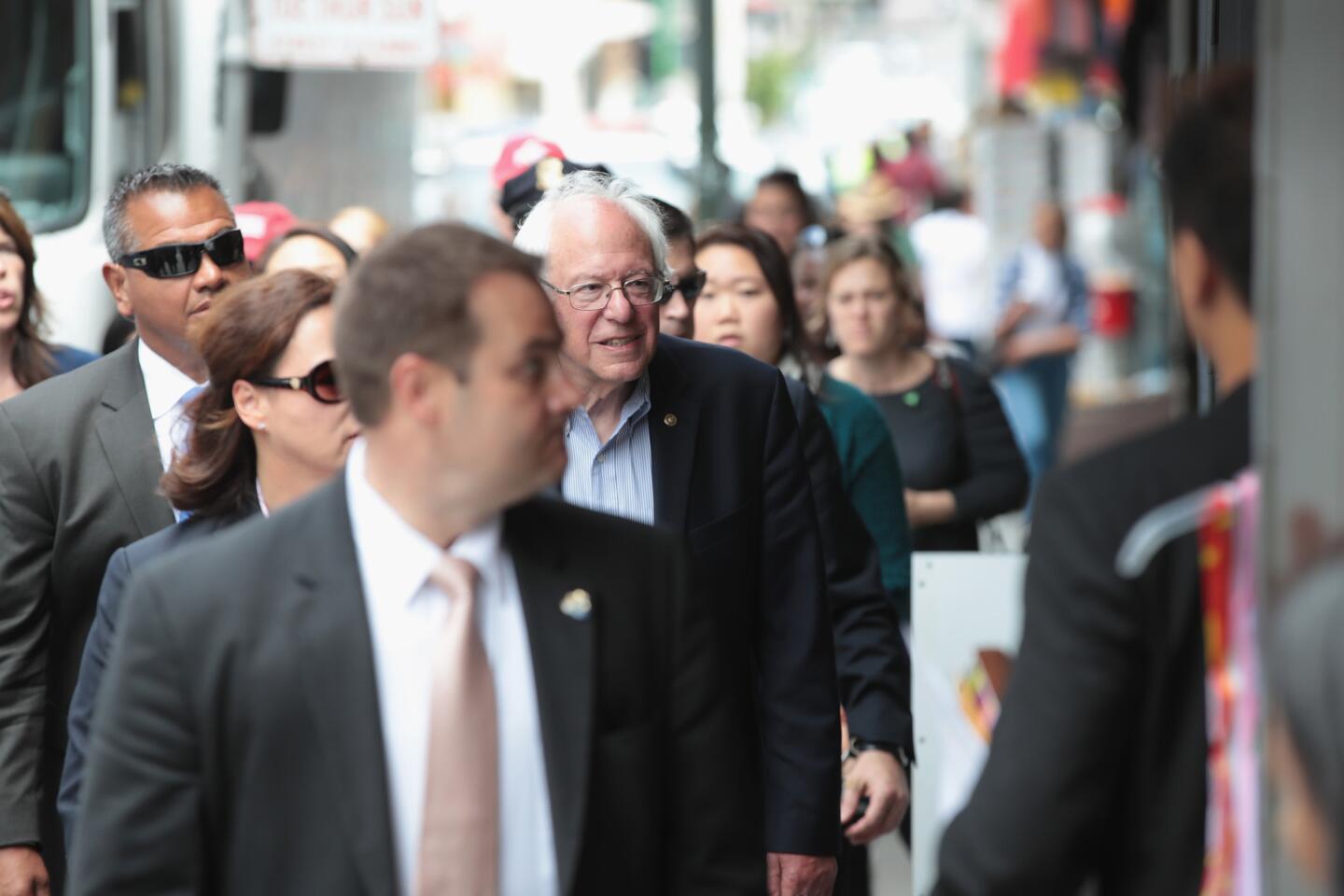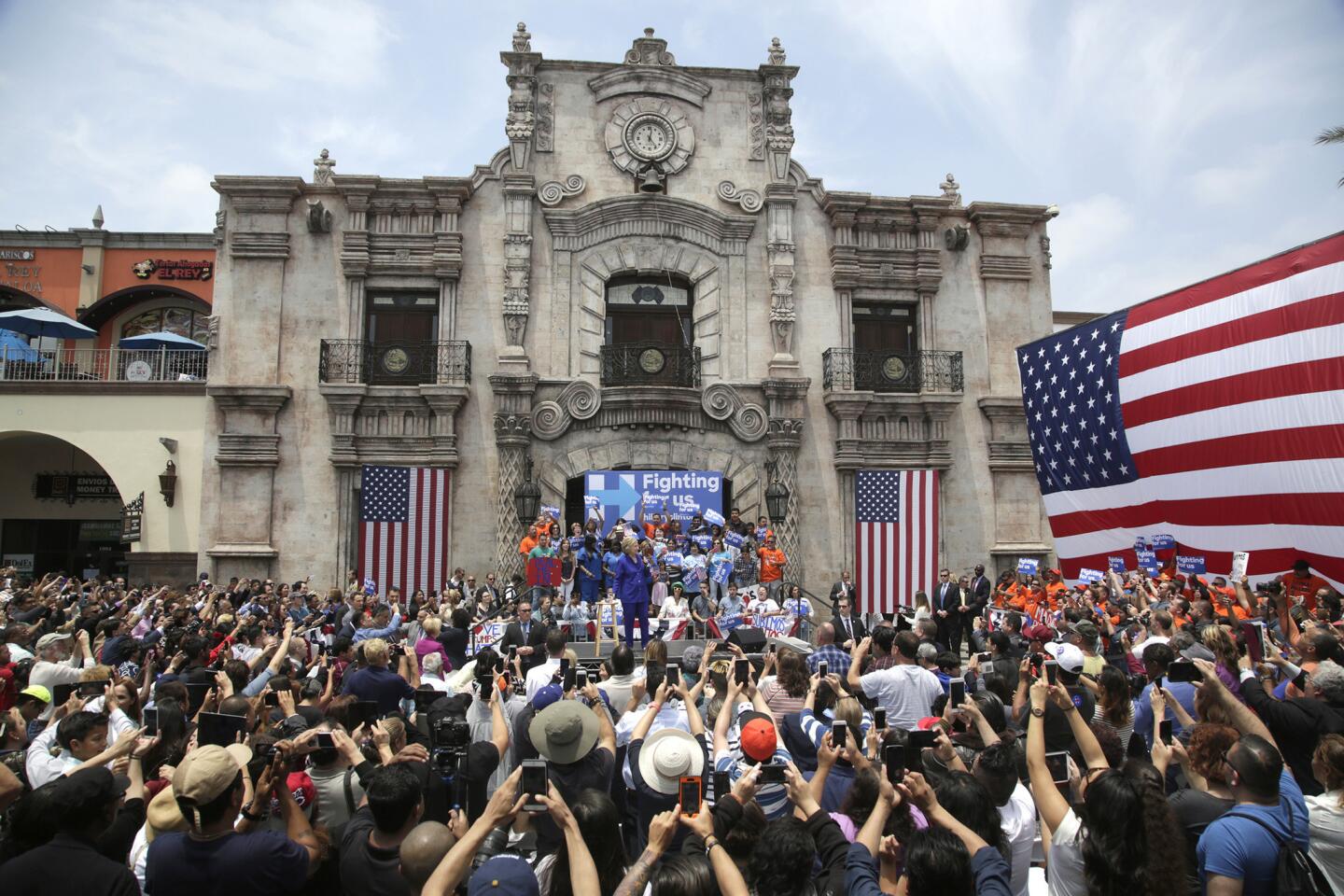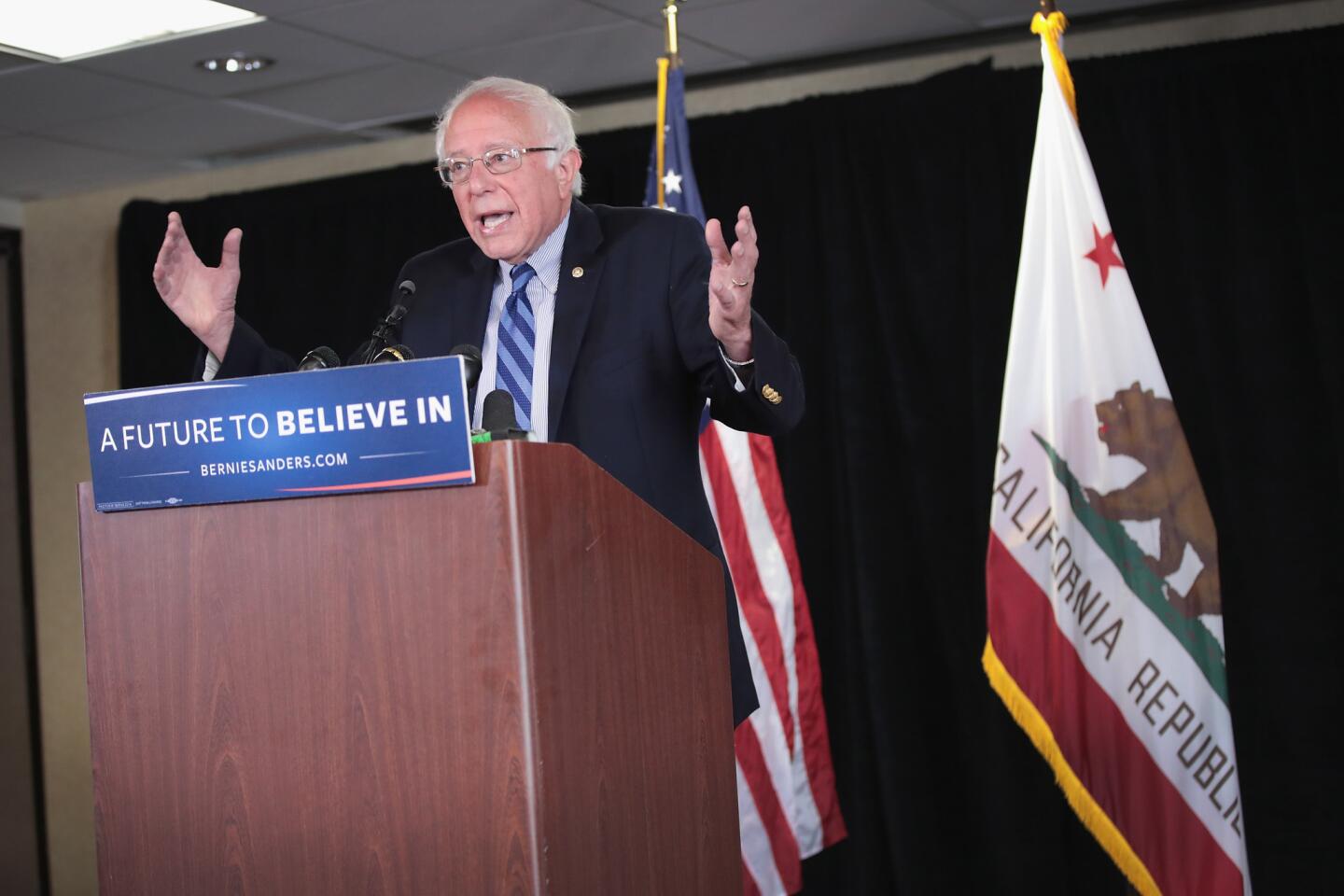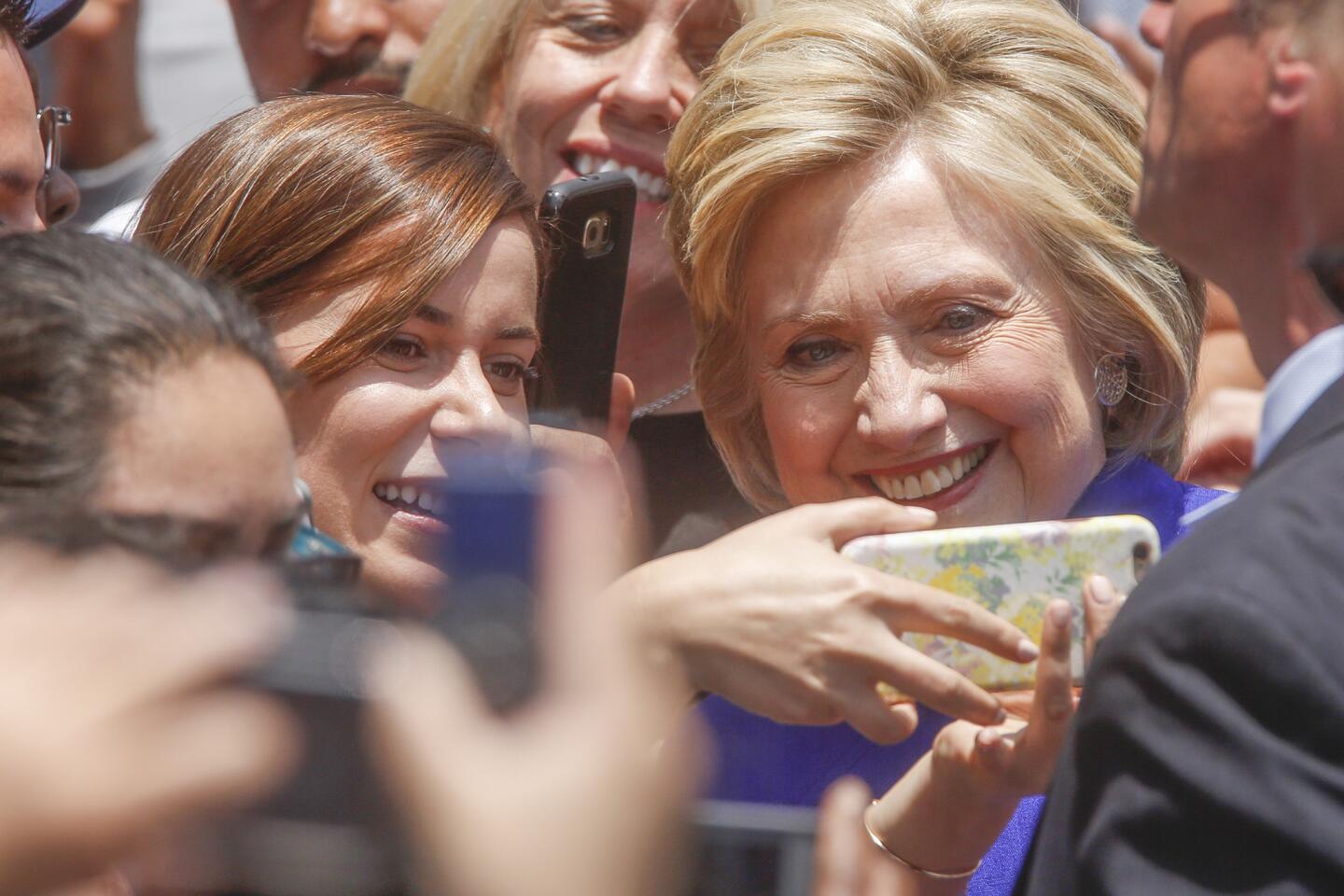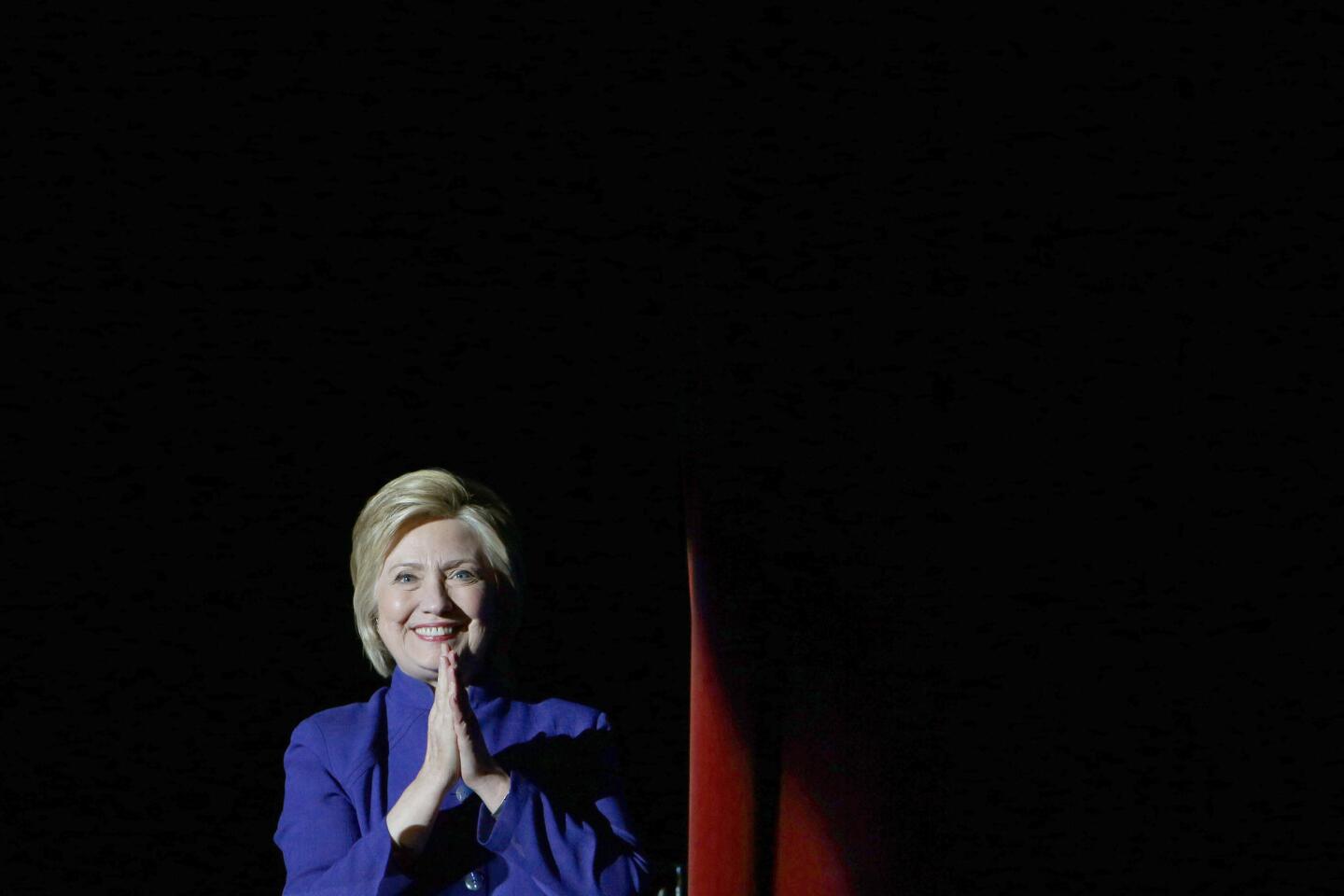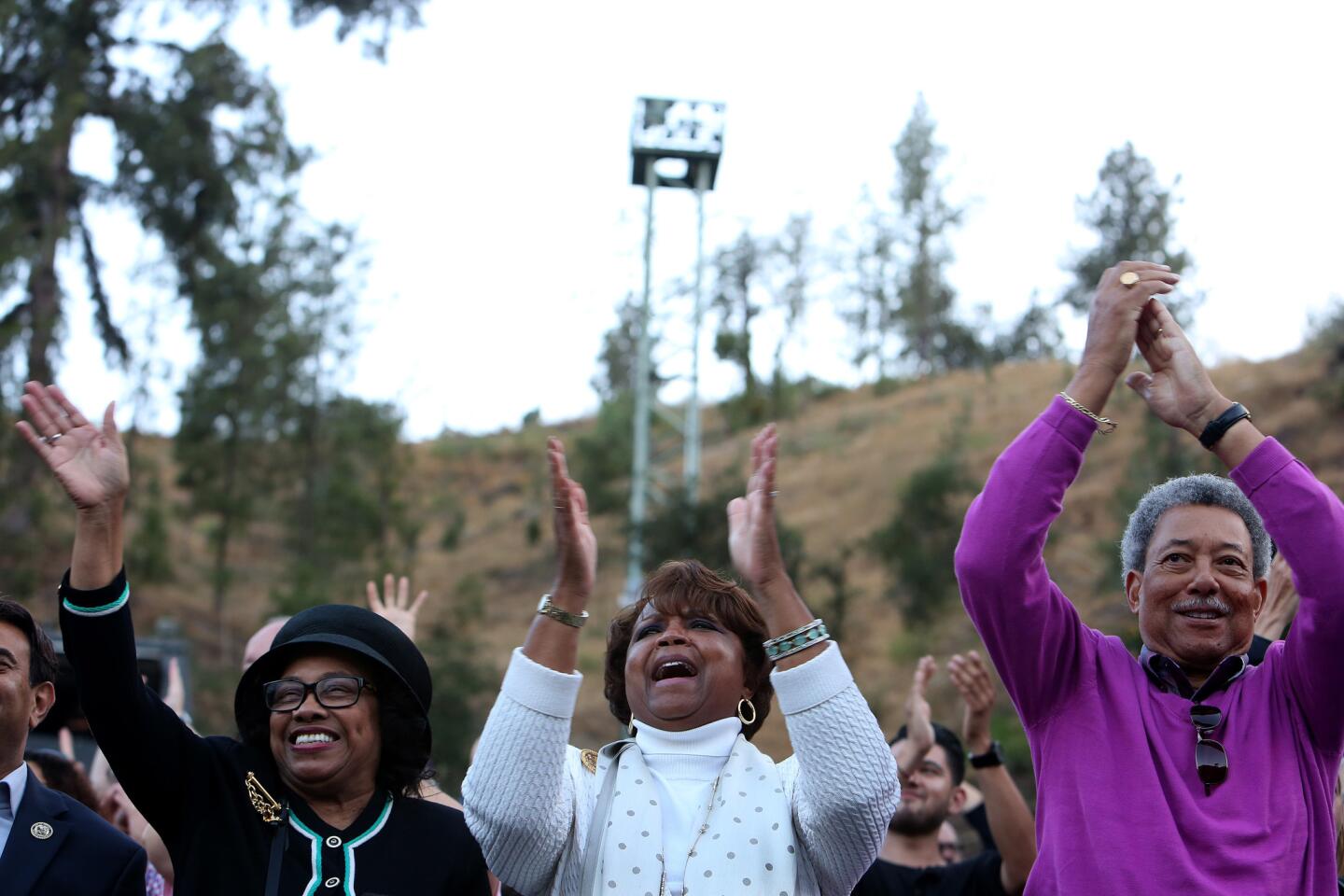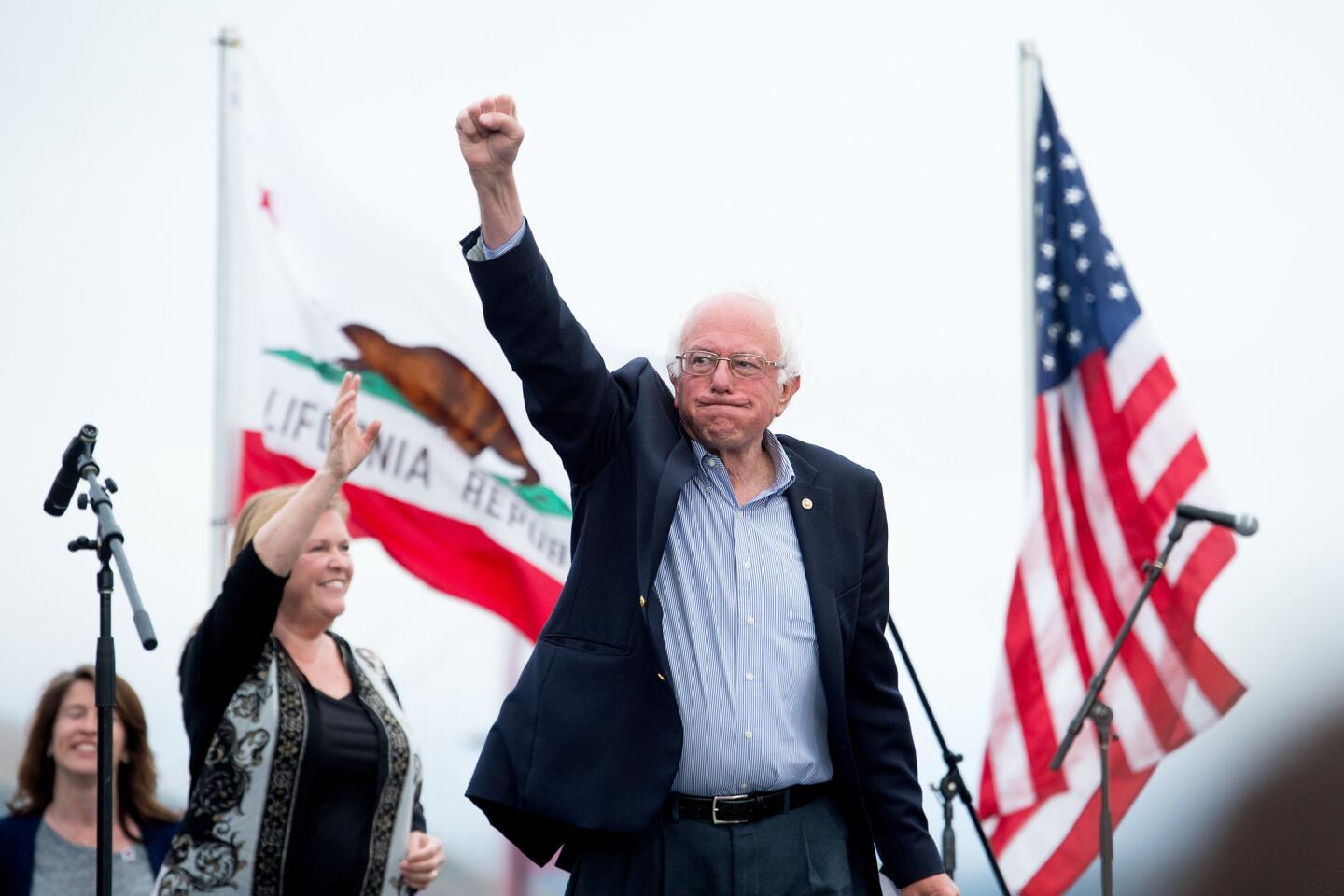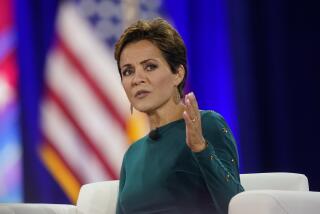Clinton clinches Democratic nomination, making history on eve of California primary
- Share via
Racing from close quarters to mass rallies, Hillary Clinton and Bernie Sanders churned across California on Monday as the former secretary of State made history — becoming the first woman ever to clinch a major party’s presidential nomination.
The Associated Press, which closely tracks the delegate count, said late Monday that enough of the uncommitted had swung behind Clinton to give her the nomination.
She declined to claim the prize, however, so as not to dampen Tuesday’s turnout.
“According to the news, we are on the brink of a historic, historic, unprecedented moment, but we still have work to do, don’t we?” a beaming Clinton told supporters at a boisterous rally in a basketball gym at Long Beach City College. “We have six elections tomorrow and we’re going to fight for every single vote, especially right here in California.”
Sanders made no mention of the delegate count in his remarks Monday night to a sprawling crowd at San Francisco’s fog-shrouded Presidio. But his campaign issued a statement accusing the media of a “rush to judgment” and insisted the nomination would not be settled until the Democratic National Convention next month in Philadelphia.
The result was a rare moment of political congruity in the testy nominating fight: Neither side wanted to acknowledge the contest was over, though for different reasons.
According to the news, we are on the brink of a historic, historic, unprecedented moment, but we still have work to do, don’t we?
— Hillary Clinton, in Long Beach
Sanders hopes to keep his campaign alive. Clinton wished not to seem presumptuous and risk an embarrassing defeat in California that would tarnish her path-breaking achievement.
After falling short in 2008, Clinton is poised to do something no woman has ever done: bear the presidential standard of the oldest political party in America. The former diplomat, first lady and U.S. senator from New York spoke to the moment after visiting with senior citizens Monday morning at a community center in Compton.
“My supporters are passionate,” Clinton told reporters. “They are committed. They have voted for me in great numbers across our country for many reasons. But among the reasons is their belief that a woman president will make a great statement, a historic statement about what kind of country we are, what we stand for.”
President Obama could endorse his former secretary of State as early as Wednesday, according to aides familiar with conversations between the White House and the Clinton camp.
After victories over the weekend in Puerto Rico and the Virgin Islands, Clinton entered the day just shy of the 2,383 delegates it takes to win the Democratic nomination.
Much of Monday’s back-and-forth between the Democratic front-runner and her insurgent opponent centered on when — and whether — Clinton should lay claim to the nomination.
Six states will vote on Tuesday in the penultimate voting day of the Democratic primary season: California, Montana, New Jersey, New Mexico, North Dakota and South Dakota.
Even before the AP updated its delegate count, Clinton signaled her intention to declare the Democratic contest over Tuesday night and turn her full attention to the November race against Republican Donald Trump.
She pointedly noted it would be eight years to the day that she withdrew after the fiercely contested 2008 primary and endorsed her opponent, then-Sen. Barack Obama.
Clinton’s race against Obama at this point in 2008 was closer than her contest with Sanders. But in the spirit of party unity, she said, she withdrew and backed her rival.
“No matter what differences we had in our long campaign, they paled in comparison to the differences we had with Republicans,” Clinton said. “And that is actually even more true today.”
Sanders, though, was having none of it.
He eagerly exhorted voters to participate in Tuesday’s primary but was not so keen to talk about what comes afterward.
At a sometimes testy news conference in Emeryville, next to San Francisco Bay, the senator from Vermont repeatedly batted away questions about how his campaign would proceed in the event that Clinton won enough delegates to claim the nomination.
He bristled when a reporter asked what he would say to women who viewed his refusal to stand down as sexist, given the historic nature of Clinton’s candidacy.
“It’s not a serious question,” Sanders snapped. “So if Hillary Clinton runs for president, it is sexist for any man to oppose her? I don’t think it is sexist.”
His case for denying Clinton the nomination rests on convincing so-called superdelegates — party leaders and others who are free to support whomever they choose in Philadelphia — that he stands the better chance of beating Trump.
A win in California, he believes, could help bolster his case by toppling Clinton in Democrats’ largest and most politically important bastion.
He devoted much of his day to the kind of up-close campaigning more typically associated with the early-voting states of Iowa and New Hampshire.
He strolled through several of San Francisco’s iconic neighborhoods, including Chinatown and the Mission and Haight-Ashbury districts, drawing enthusiastic throngs of selfie-snapping fans.
He largely avoided attacks on Clinton, aiming instead at Trump, the GOP’s presumptive nominee.
He accused the New York business magnate of “running his campaign on bigotry,” citing his attacks on the Mexican heritage of San Diego Judge Gonzalo Curiel, who is presiding over a lawsuit involving Trump’s defunct for-profit university.
“This is the year 2016,” Sanders said. “To attack a judge because he is of Mexican heritage — a man born in the state of Indiana — this is a candidate of one of the … major political parties in this country? It it really quite incomprehensible.”
Clinton weighed in Monday night during an MSNBC interview, citing Trump’s “attacks on so many other people … for their ethnic background, their race, their religion, their gender.”
“I don’t know what else you could call these attacks other than racist, other than prejudice, other than bigoted,” Clinton said. “It’s just plain wrong, and certainly wrong coming from someone who is vying to become president of the United States.”
Obama’s decision to formally endorse the Democrats’ presumed nominee depends heavily on the results Tuesday.
The president has been eager to campaign, aides have said, but he has been deferential toward Sanders, even as the president warns that Democrats must begin making their case to a general-election audience.
Obama and Sanders chatted by telephone for about 45 minutes Sunday. A person familiar with the conversation confirmed it took place as Sanders motored between Los Angeles-area events, but declined to discuss the substance of their chat.
Times staff writers Kurtis Lee and Seema Mehta in Los Angeles and Christi Parsons in Washington contributed to this report.
For more political news and analysis, follow me on Twitter @markzbarabak
ALSO
Clinton strategist: ‘We win a tight race’ in California
Florida attorney general asked Trump for donation before nixing fraud case
What comes after the California primary? Bernie Sanders bats away ‘speculation’
More to Read
Get the L.A. Times Politics newsletter
Deeply reported insights into legislation, politics and policy from Sacramento, Washington and beyond. In your inbox twice per week.
You may occasionally receive promotional content from the Los Angeles Times.
